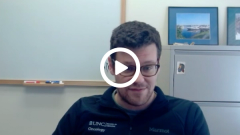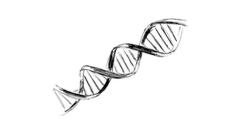
Nab-Sirolimus and Its Role in PEComa Treatment
Jacob Stein, MD, MPH, discusses how nab-sirolimus improves outcomes for patients with advanced perivascular epithelioid cell tumors compared with other treatments or no treatment options.
Episodes in this series
Jacob Stein, MD, MPH, assistant professor of medicine at the University of North Carolina at Chapel Hill, lead of the sarcoma medIcal oncology department, discusses how nab-sirolimus improves outcomes for patients with advanced perivascular epithelioid cell tumors (PEComa) compared with other treatments or no treatment options.
Nab-sirolimus (Fyarro) was approved by
Transcription:
0:09 | [PEComas] are ultra rare mesenchymal tumors. The incidence is about 1 in a million, and they are related to some other benign diseases, like angiomyolipoma, but these malignant PEComas can arise in a retroperitoneum. They can arise in the uterus, and for most of the time clinical practice, if it is an isolated lesion, the answer is resection, and they do not need adjuvant therapy or anything else, and they have a pretty good chance of cure. But if they come back, they can be quite problematic.
0:50 | Chemotherapy does not tend to work well in this disease. This is a rare tumor, which means we do not have the highest quality data on this, but studies tend to show a response rate of about 10% to 20% and a progression-free survival [PFS] in the 3 month range with typical chemotherapy, which is pretty poor. Tyrosine kinase inhibitors have been explored, but similarly, have pretty poor response rates and PFS in the maybe 5 or 6 month range. We know that PEComas are driven by mTOR activation, and that is what led to the interest with nab-sirolimus.
1:30 | This was shown to have benefit in the AMPECT trial, which was a national, multicenter study. They enrolled 31 patients, which does not sound like that much, but again, when we are talking about a super rare disease, that is a fantastic success. They showed impressive results with this drug. The objective response rate was nearly 40%, median PFS was 10.6 months, and overall survival was over 40 months over 3 and a half years.










































